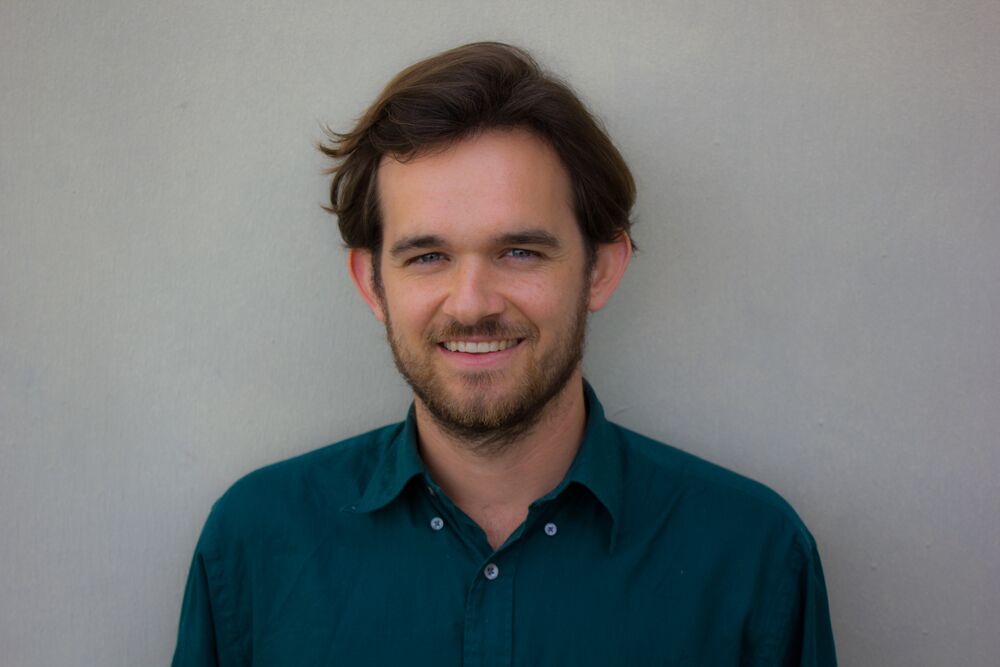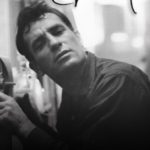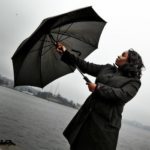Rowan Moore Gerety is a journalist based in Miami. His writing has appeared in The Atlantic, Foreign Policy, the Miami Herald, Slate, and Virginia Quarterly Review, and he has produced radio stories for NPR and PRI. He studied anthropology at Columbia University and was a Fulbright fellow in Mozambique. His first book is Go Tell the Crocodiles: Chasing Prosperity in Mozambique.
How did you get started traveling?
I got the chance to live overseas for the first time when I was in 8th grade. My father is an academic, and he got a six month sabbatical. We moved to Paris halfway through the school year, and my parents thought the best way for me to learn French was just to put me in a French school, which they did. The first couple months were rough, but it ended up being a great experience. It made me fall in love with learning languages and with the heightened sense of observation you get as a foreigner—the natural comparing and contrasting with the place you’re from, and the newness of everything, even in the slightest details.
How did you get started writing?
I always loved writing, not necessarily the act itself, but for the clarity and sharpness that comes from committing ideas to paper. In high school, I wrote a lot of poetry and fiction, which I haven’t done since, but the first paid gig I got writing was the summer after college. A term paper I wrote on communion wafers got published in a student publication, and when an editor at the New York Historical Society saw it, it turned into the chance to join a team researching and writing entries for the Encyclopedia of New York. That project was huge fun for me: a chance to dive-deep in researching coffee shops in 18th-century New York, and reading about the Brooklyn Harbor’s days as a huge port for sugar.
What do you consider your first “break” as a writer?
One of the best early encouragements I had in journalism was a break that actually didn’t turn out to be a break. I wrote a short essay about the experience of learning Haitian Creole that got accepted, and then killed, at The Atlantic. That was the first time I got paid a kill fee, and it did two things for me. First, it showed me that the right piece can actually get some attention from prominent publications, and that people actually got paid for the kind of writing I wanted to do. And it also showed me that you need a fair amount of grit and persistence to get something published—even if an editor likes the piece or the idea, it doesn’t mean it will get printed.
As a traveler and fact/story gatherer, what is your biggest challenge on the road?
Logistics. This is one place where the differences between journalism that involves travel and travel that involves journalism are more pronounced. Last year, I spent 6 weeks in Madagascar working on a series of 10 stories about conservation for the the environmental outlet Mongabay. Given how little time I had in the country, it was important to try and line up as much as I could ahead of time, but I usually find it hard to get in touch with the right sources before I’m in the country, so it ends up being kind of a juggling act at the start of the trip. My first week’s agenda was basically to line up my itinerary for the next 5 weeks while I figured out travel times and plane schedules and so forth. I used my interviews in the capital to see who I could try and see when and where. A lot of that remained in flux, even once I got on the road, because traveling there is unpredictable. So the challenge for me was trying to plot out my reporting of the next stage of my trip while I was still in the middle of reporting right where I was.
What is your biggest challenge in the research and writing process?
Some stories are easier and faster than others, but I don’t think writing ever gets much easier. I’m trying to change my habits, but I always have a hard time writing the rest of a piece if I’m not happy with the top, so I put a lot of effort into writing and re-writing the first section of any given story. I find that I enjoying revision and re-writing a lot, so the most difficult stage of a project for me is when the big structural elements of a long piece are in flux. Before I feel confident about the structure of a piece (even if it will change later on), sometimes it feels like I am just writing in circles.
What is your biggest challenge from a business standpoint?
Pitching and getting paid. I recently returned to freelancing after a few years working on staff in public radio, and it can be hard to develop a good routine around the more administrative elements of the job—structuring when you check your email or ping editors who are slow to responding, and keeping track of what you’ve been paid for and what you haven’t.
I include pitching in that because there’s often a kind of uncomfortable back-and-forth when someone is interested in a story and you haven’t nailed down the terms, and there’s some natural friction to asking, ‘ok, what is the fee for this piece,’ and so on. Radio, in my experience, tends to be more straightforward than print.
Have you ever done other work to make ends meet?
When I first started working as a journalist, I also had a business selling salads and soups and stuff I made from produce I bought at a farmers market in Los Angeles and prepared on the spot. It was called Bomb Salads. It was a lot of fun, though I don’t miss it at all. I also do some work editing and on radio/podcast production, which is more in line with writing, and is always helpful to improve my chops as a storyteller.
What travel authors or books might you recommend and/or have influenced you?
Down and Out in Paris and London is one of my favorite George Orwell books—you get all the wisdom and humor and incredible incisiveness of his essays and novels, but it takes place against this backdrop where’s he’s scraping by as a hobo and dishwasher in early 20th century Europe. Amy Wilentz’s first book, The Rainy Season, covers a very turbulent period in Haitian history, as the Duvalier era was coming to a close in the late 1980s. It’s a very powerful mix of reporting and fly-on-the-wall commentary about what it’s like to live through such chaotic politics. Also, William Dalrymple is one of my favorite travel writers for the way he blends travelogues with great historical research.
What advice and/or warnings would you give to someone who is considering going into travel writing?
I wouldn’t know where to begin. For someone who wants to go into journalism, I’d say that if you know early on that it’s something you’d like to do, take every opportunity to develop your writing and get clips while you’re still in school. I didn’t really think about making a living as a journalist until I was a few years out of college, so I wasn’t able to develop the professional network or skillset that might have come from doing internships and so on. There are still a lot of paths to a career, but it takes a different kind of hustle to catch up if you don’t go a more traditional route.
What is the biggest reward of life as a travel writer?
The greatest gift of journalism is the opportunity to immerse yourself in a series of new worlds with each successive project. There aren’t very many professions where curiosity is such a driving force, and I’ve felt very lucky to spend time with so many different kinds of people in the course of a day’s work.





